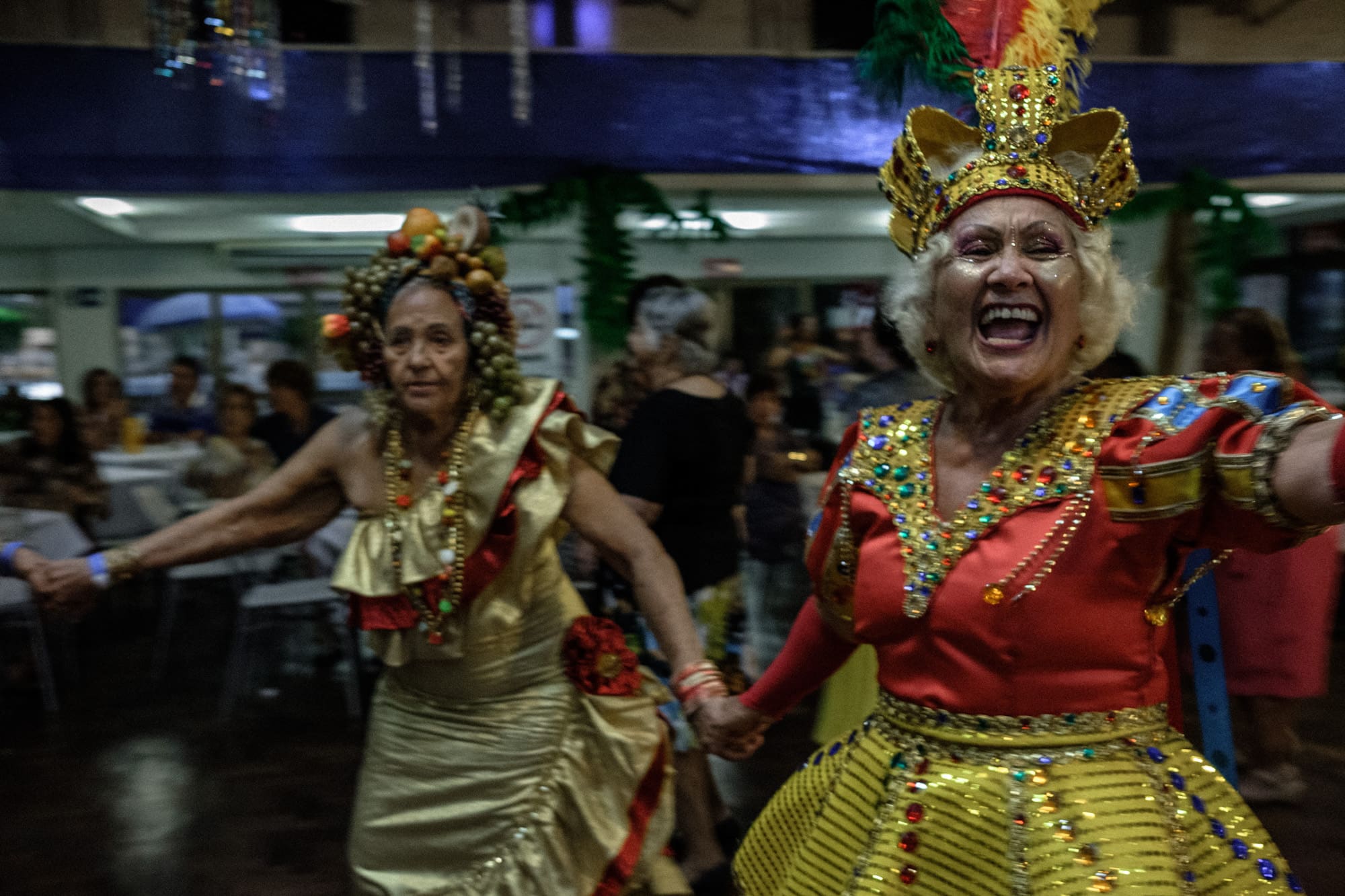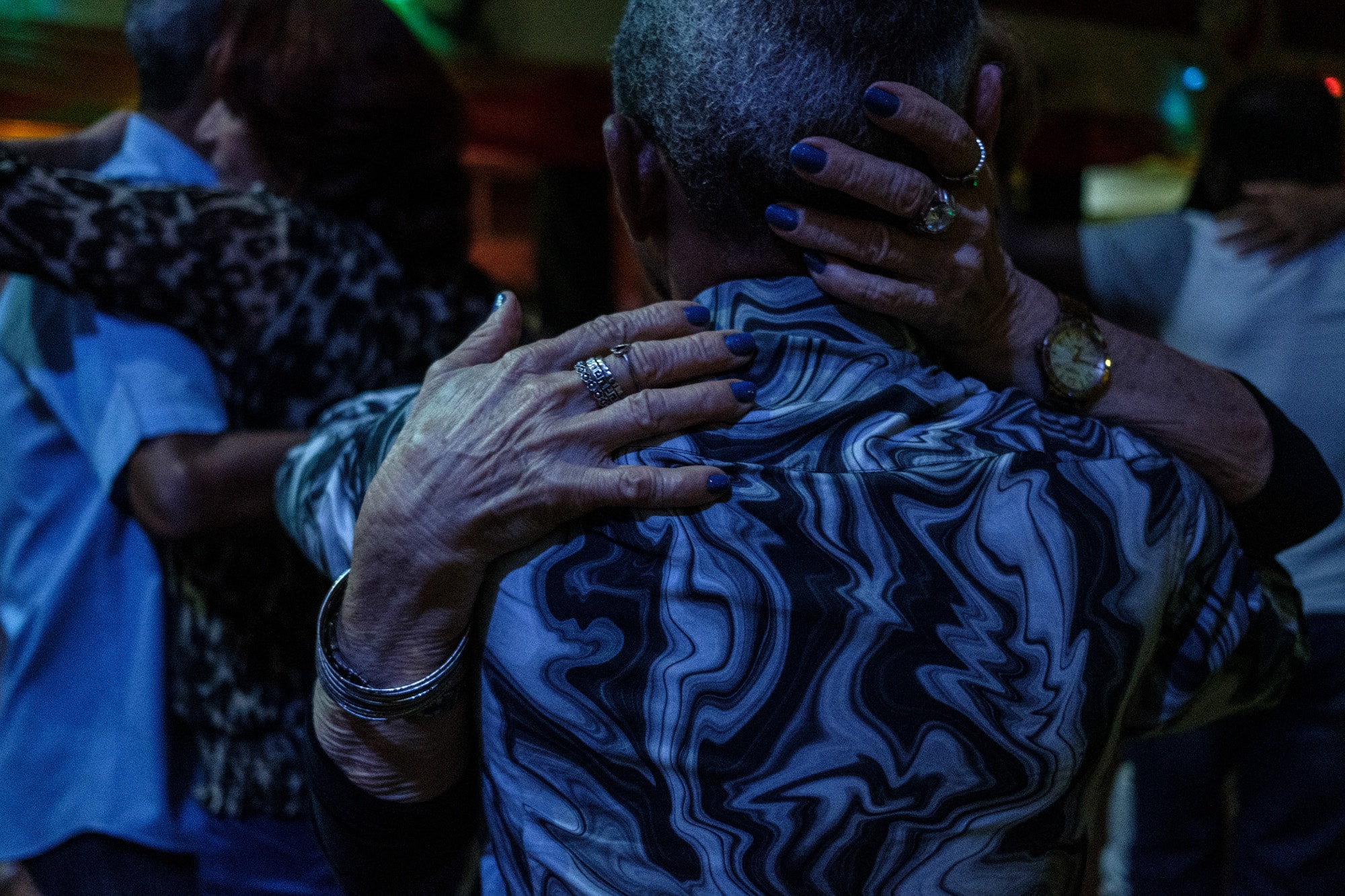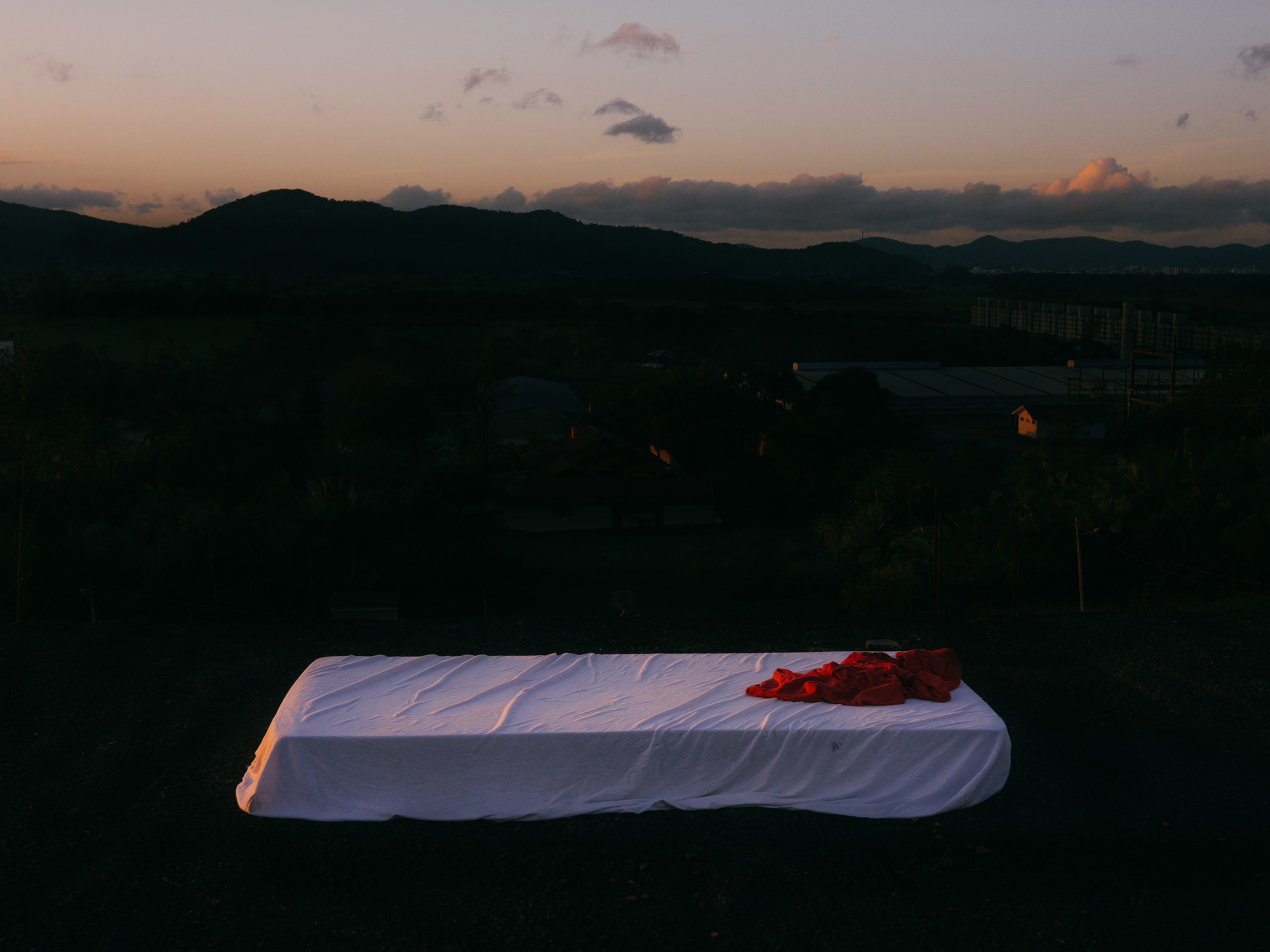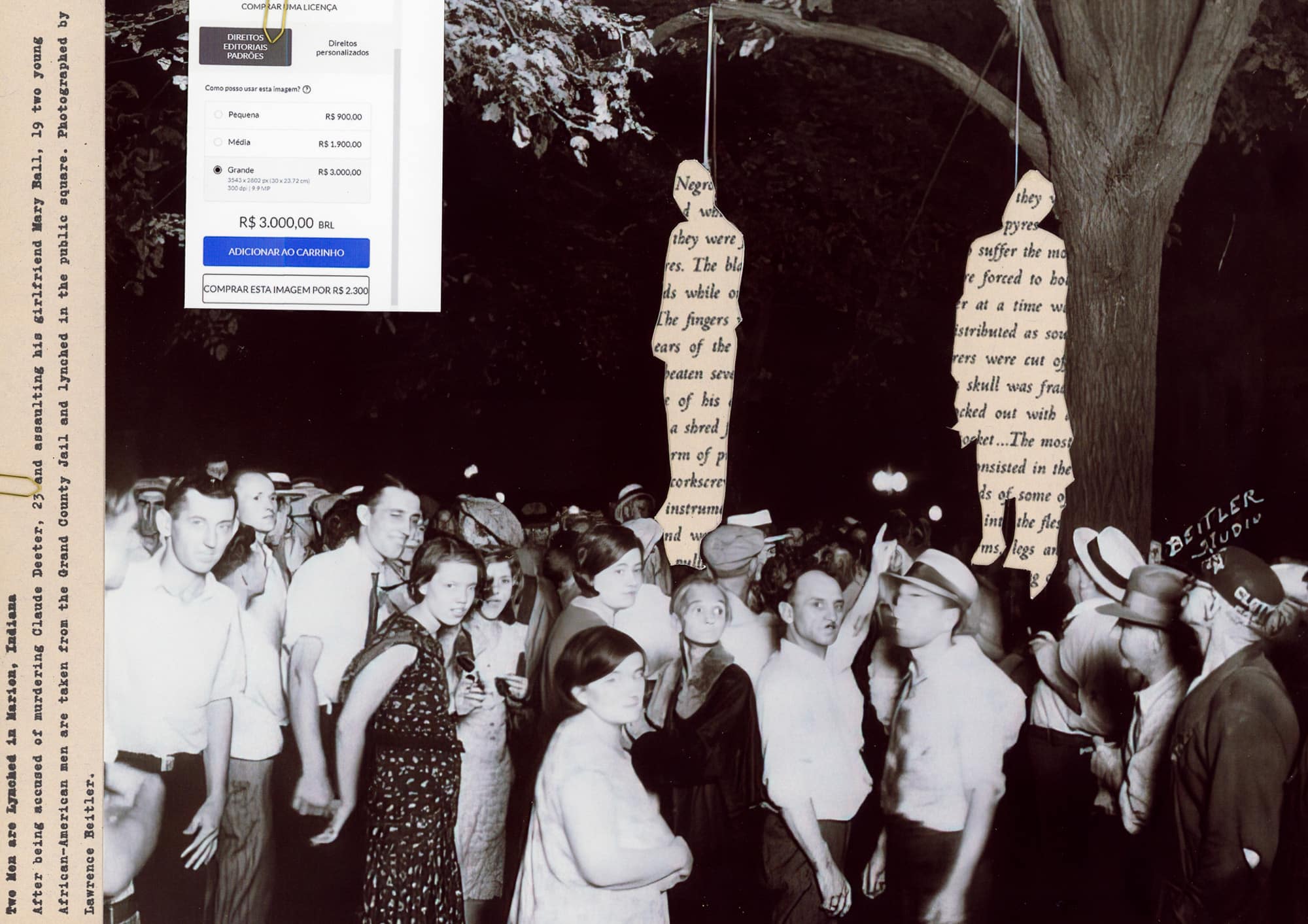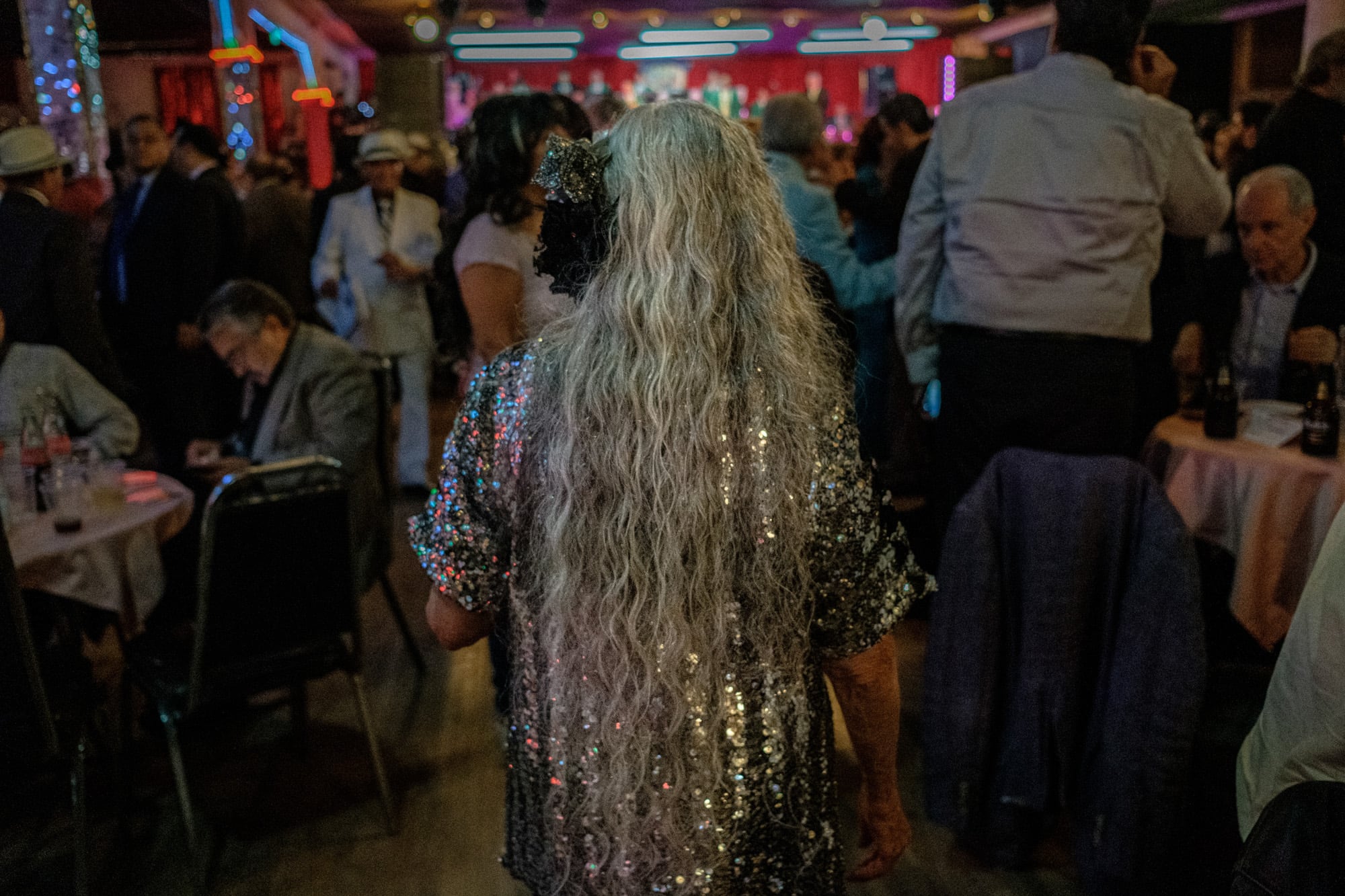
Blossoming at 70 years old
In “La Historia Que Imaginé Para Ti,” Brazilian photographer Maíra Erlich documents the experiences of a group of elderly women who, liberated from the traditional norms they adhered to in their youth, now attend dance halls, go on cruises, and strive to live life to the fullest.
By Alonso Almenara
For someone born in the 1950s, experiencing freedom for the first time in the 2020s—the era of YouTube, Instagram, and Bumble—must be an overwhelming experience. That is precisely what Brazilian photographer Maíra Erlich captures in “La Historia Que Imaginé Para Ti,” an ongoing photographic essay that she defines as “a tribute to my grandmother and to all women over seventy who allowed me to share their journeys, their celebrations, and to record their experiences.”
The women Erlich portrays are not traditional grandmothers. They use social media, dress stylishly, and share a vibrant zest for life—notably, a love for dancing, which they practice in clubs and night venues specifically designed for senior citizens. Yet, they also share a challenging past: as Erlich explains, “They were born in an extremely patriarchal era, in which they had to give up their dreams of pursuing a formal education, building a professional career, or marrying the one they truly loved.” Many of them are now widowed or divorced and have minimal obligations. In other words, they are finally enjoying the possibility of being who they want to be.
“Being over 70 years old today is very different from what it was 20 years ago, and it will be different again in 20 years,” says Erlich. “We are at a pivotal moment. People are living longer and better, and the constraints of old age no longer bind them, as these have changed.”
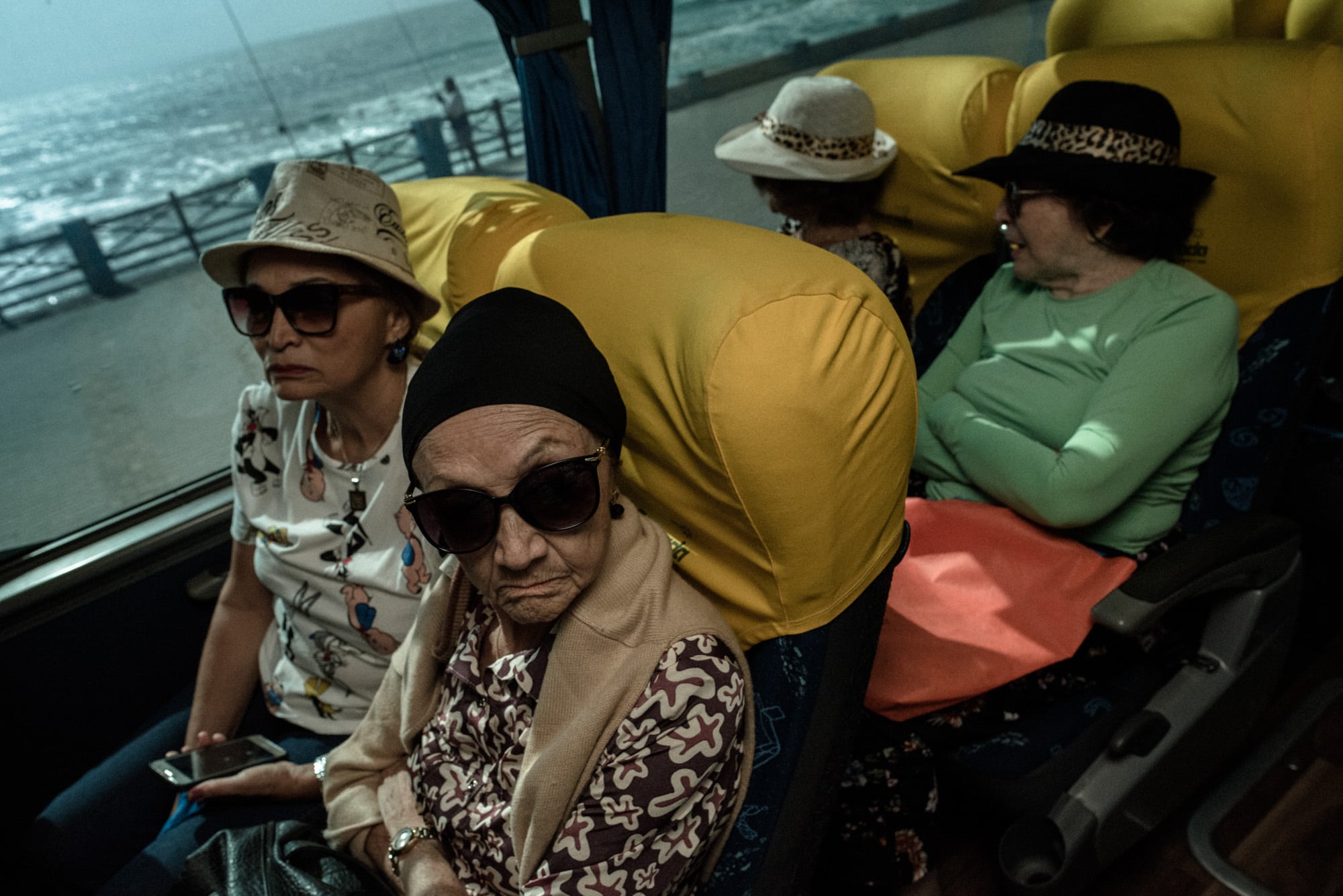
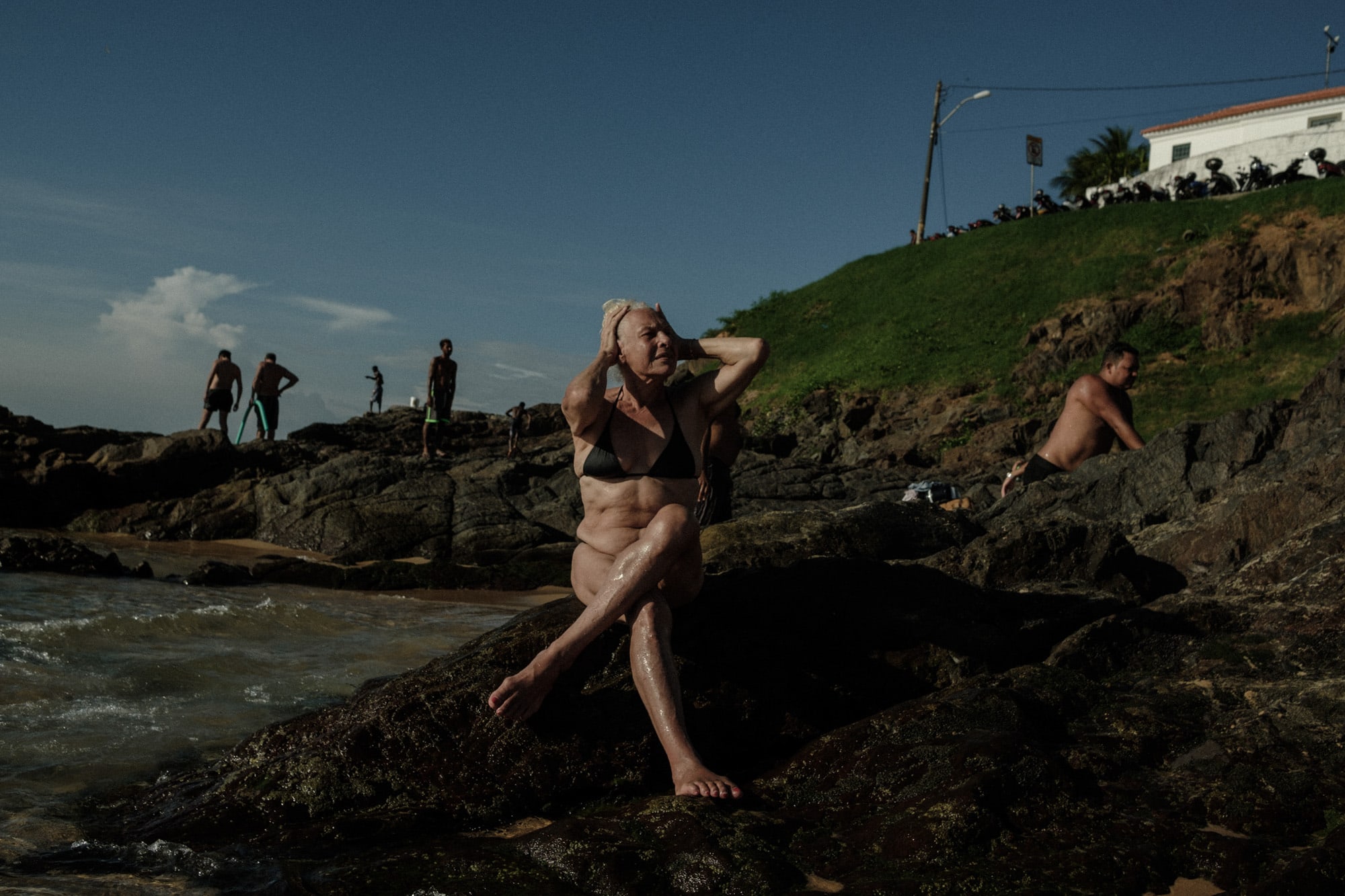
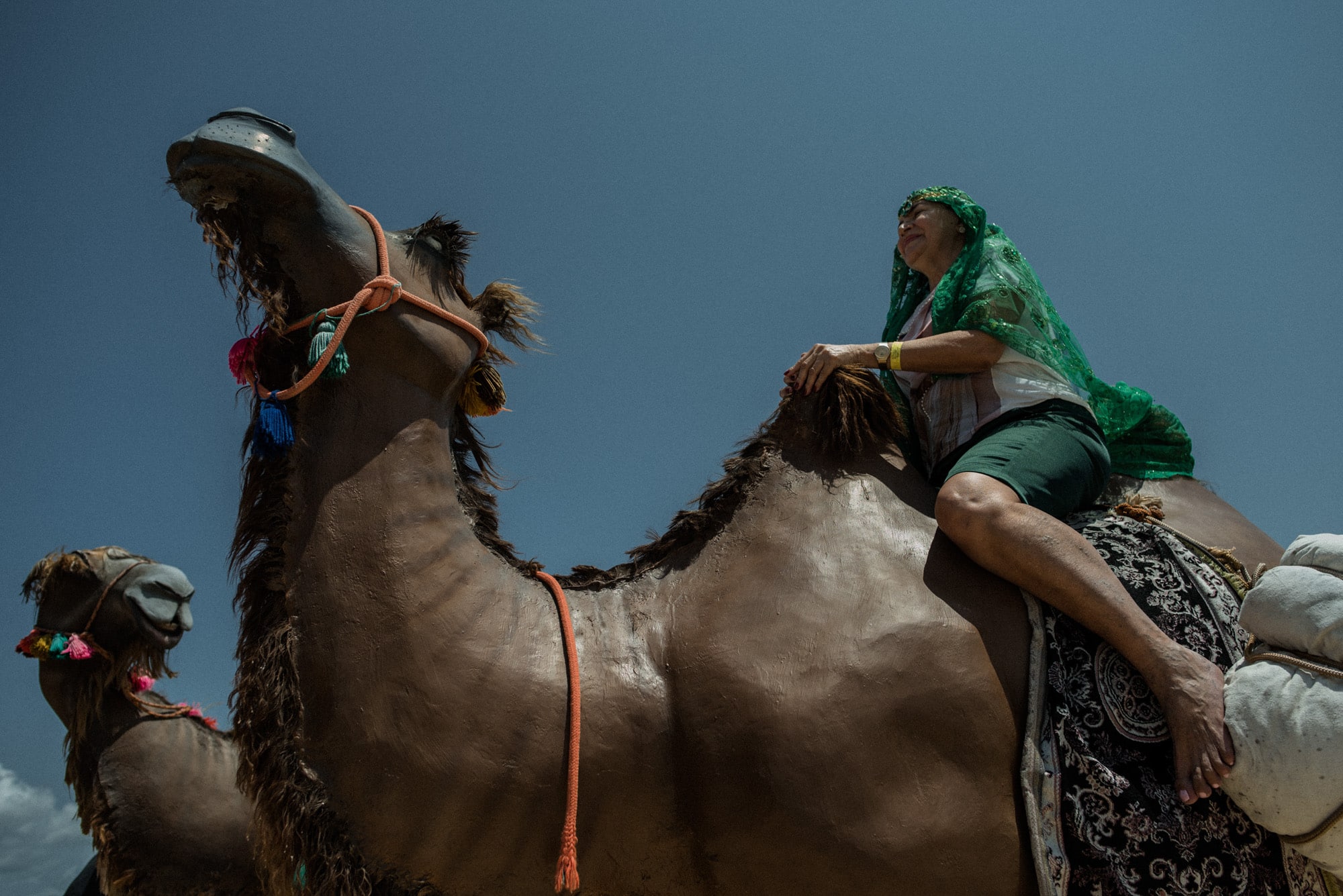
How did this project come about?
In 2017, I traveled to Mexico City to attend a photography workshop and took the opportunity to visit the Salon Los Ángeles, a well-known dance hall for senior citizens. I loved it there. That’s where I took the first photo that later became this project. Back in Brazil, I started looking for similar places. On the internet, I came across a tourism conference for elderly people. I spoke with the director, expressed my interest, and went to see what it was about.
I spent four days at a beach resort and met some women who were very interested in what I was trying to do, even though I didn’t know what that was. I just knew I was interested in learning about their way of life, which was very different from my idea of my grandmother. Of course, they loved that I wanted to document their activities because when you’re an elderly person, people don’t usually show as much interest in your life story.
So they would say, “You have to come to our town because we have a very active group there. You can stay in our homes.” And that’s what I did: I traveled, first to the northeast of Brazil, to the beach, and then to the south. That’s how I started documenting their lives. These ladies live a fun life, different from what I had imagined. Because as I was saying, the idea I had of older adults is based on memories of my grandmothers. They didn’t go out partying. They didn’t travel. They didn’t go to dances or anything like that. They stayed at home doing household chores.
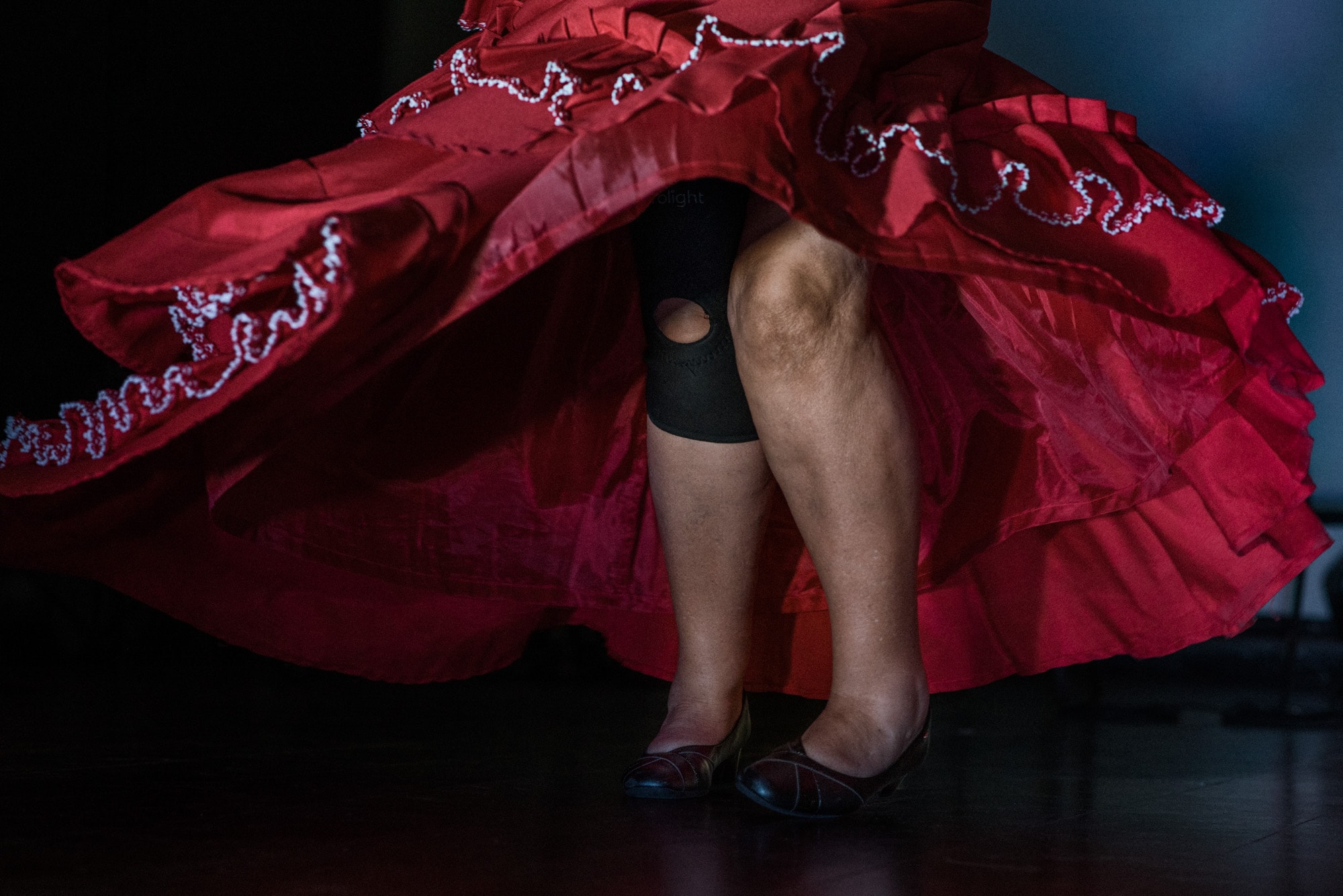
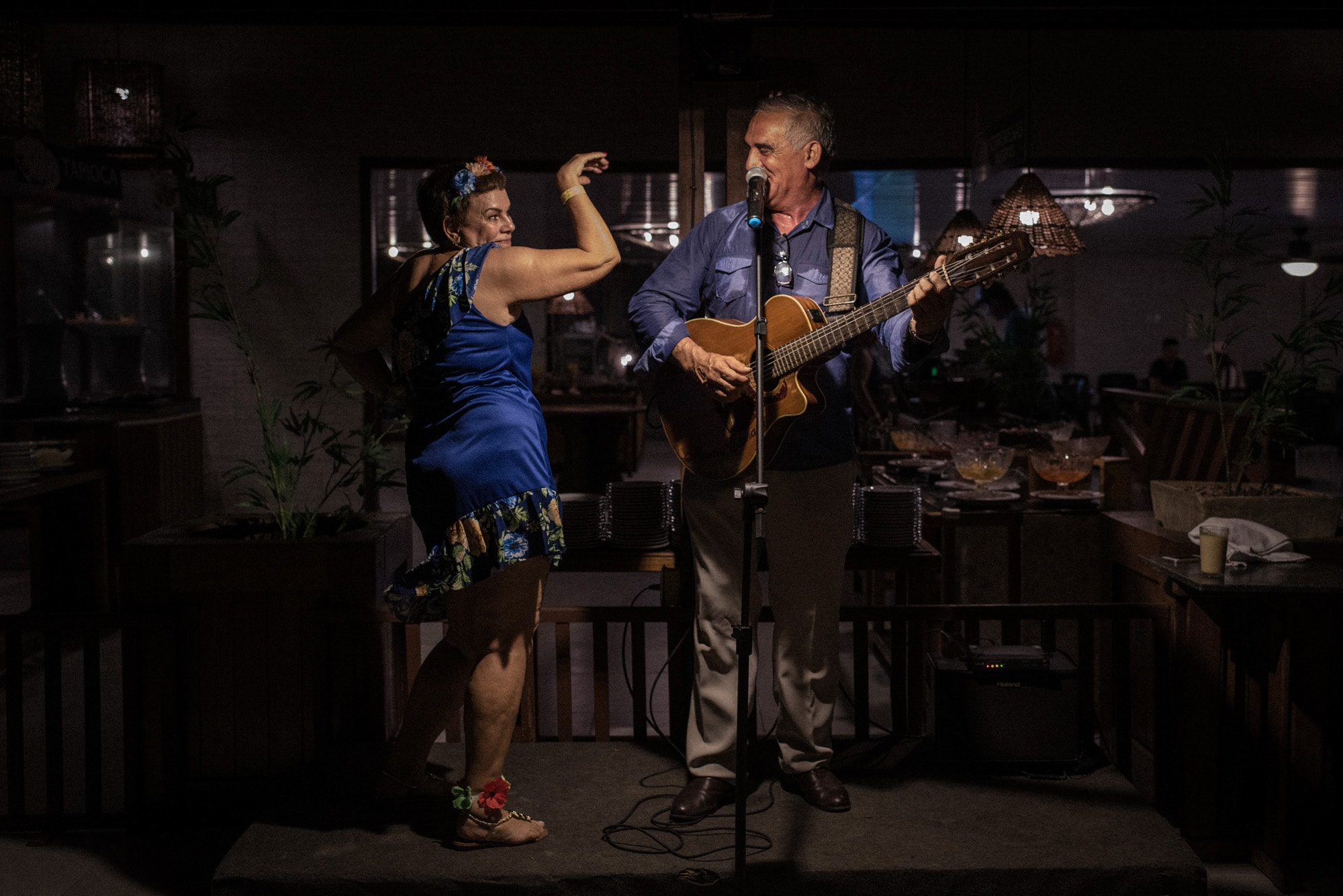
So I realized that this project was two things: on the one hand, a way for me to connect with people who remind me of my grandmothers, and on the other hand, something that allows me to imagine a continuation or a different ending for the lives they couldn’t have.
This project is very personal, and it excites me a lot. I captured most of the images during those trips between 2017 and 2019. Then the pandemic arrived, and I had a lot of time to think about what I wanted to do. I began to understand that my interest in the project was mainly related to my paternal grandmother. She passed away ten years before the pandemic began, and her story differs significantly from those I have been photographing. My grandmother was the daughter of Polish Jewish immigrants who came to Brazil fleeing World War II. She grew up in a traditional Jewish family, married a Jewish doctor, and from then on, she couldn’t work anymore. She only returned to work after her husband, my grandfather, passed away. She gave up many things she wanted to do to conform to the norms of her surroundings. She couldn’t travel, play music, or have a career.
So I realized that this project was two things: on the one hand, a way for me to connect with people who remind me of my grandmothers, and on the other hand, something that allows me to imagine a continuation or a different ending for the lives they couldn’t have.
But I think the project still lacks many things. For now, I mostly have photos of parties, and I’m interested in achieving a more diverse final result, showing these people’s lives beyond the dance floor.
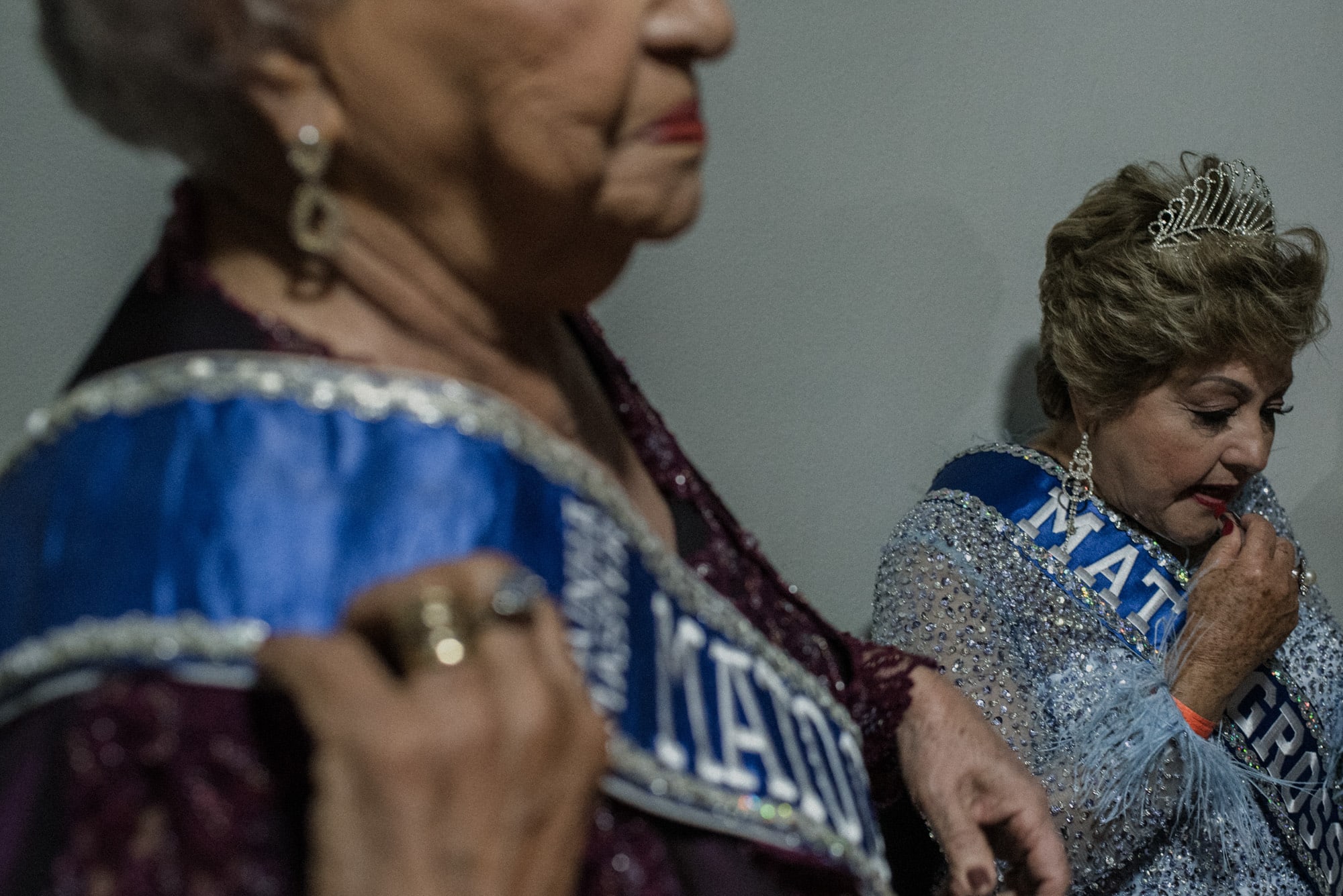
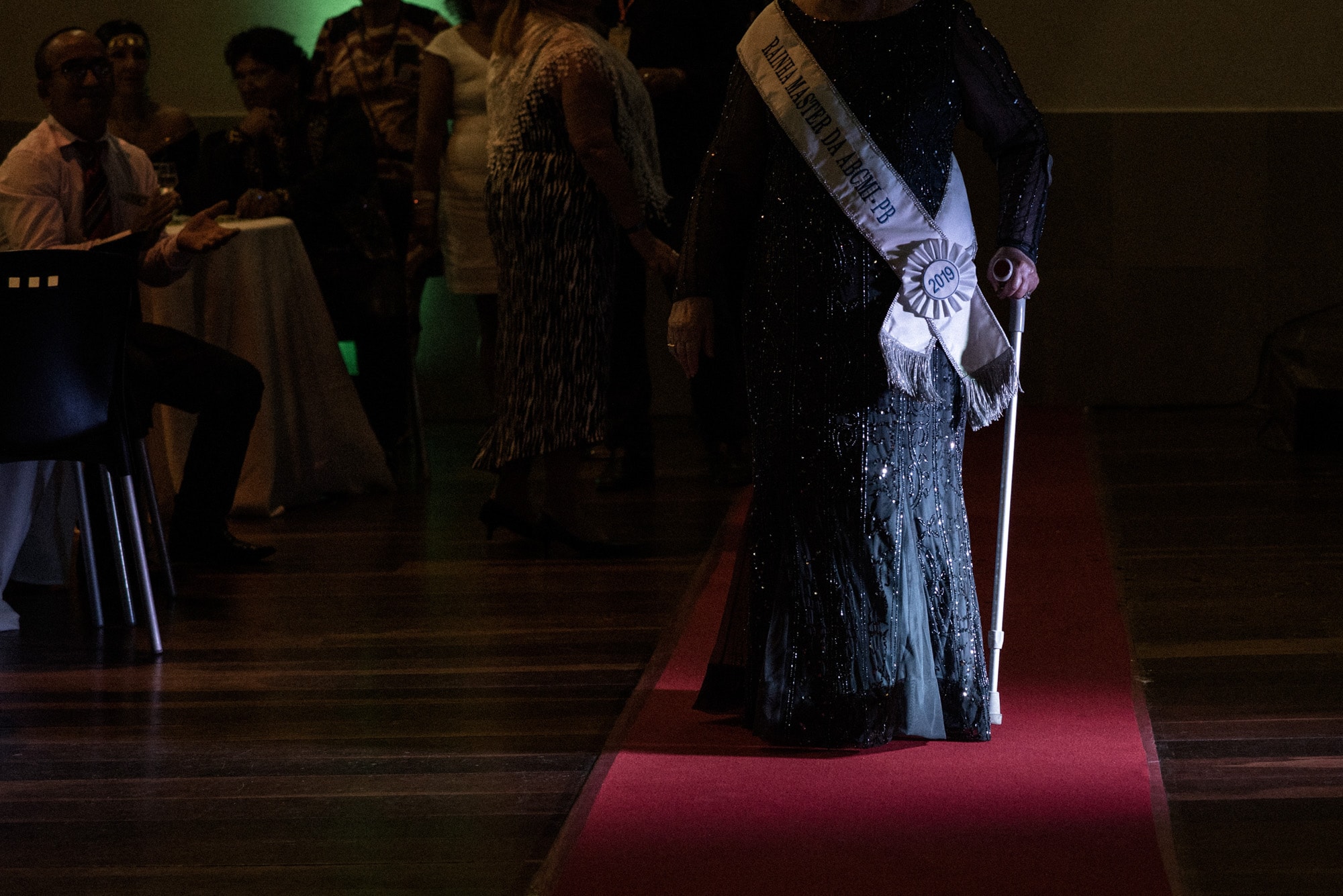
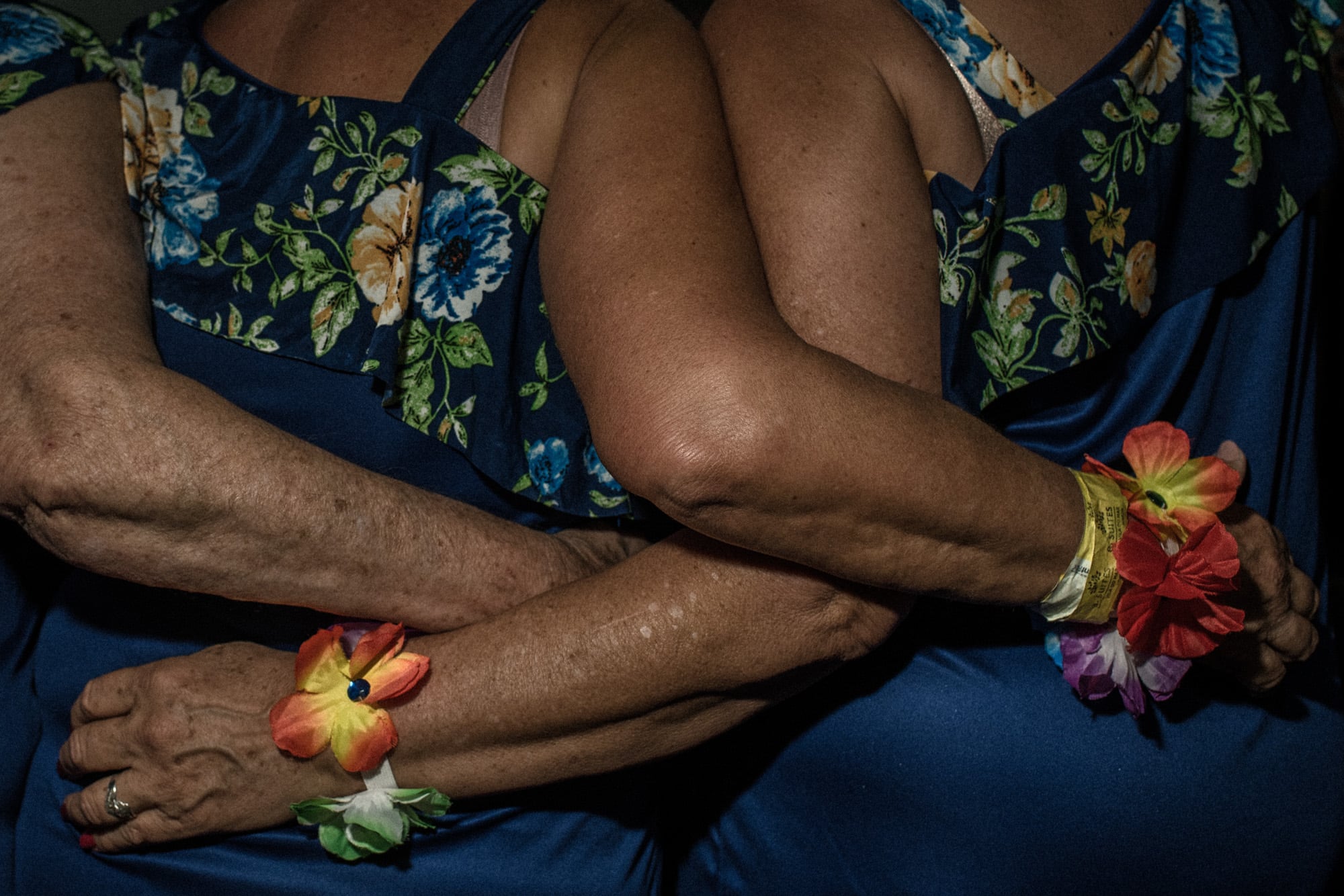
These women who grew up in a highly patriarchal society have, at the age of 70, the opportunity to live fully for the first time. What do they tell you about this experience of flourishing at an advanced age?
Being seventy years old today is very different from what it was ten, twenty, thirty years ago. When my grandmother was sixty, she already looked like a grandmother, dressed like one. It was very different from my mother, who is now in her sixties and is super young, younger than me. That is changing because people are living longer, living better.
In reality, most of the stories I heard were about women who were married for fifty years to a man who didn’t like to go out dancing and didn’t let them go out alone. Almost all of them are widows or divorced. Now they can do what they want. They have no significant obligations. Their children are grown. It’s curious to experience late freedom when you no longer owe anything to anyone. These women are full of activities. They form groups and clubs that organize parties and trips. They go on cruises in Europe, and they do it all.
Things are changing so much. What interests me, precisely, is documenting the experience of these women who were born in the 1930s, 1940s, and 1950s and who are the generation that went through that change. Today, thanks to feminism, there is much more awareness that we don’t have to accept everything society imposes on us. And that generation is the one that lived through that transition in thinking most intensely.
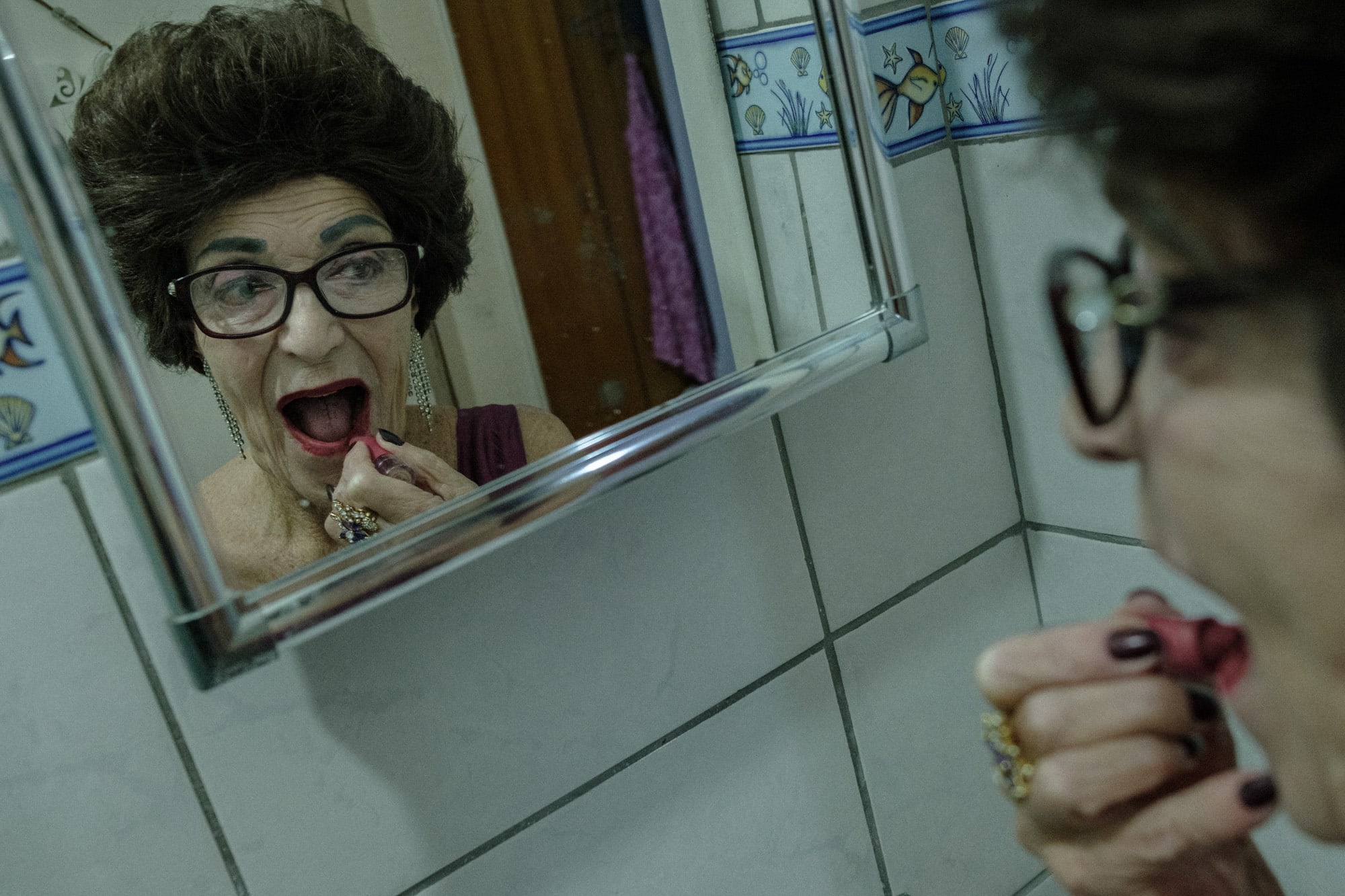
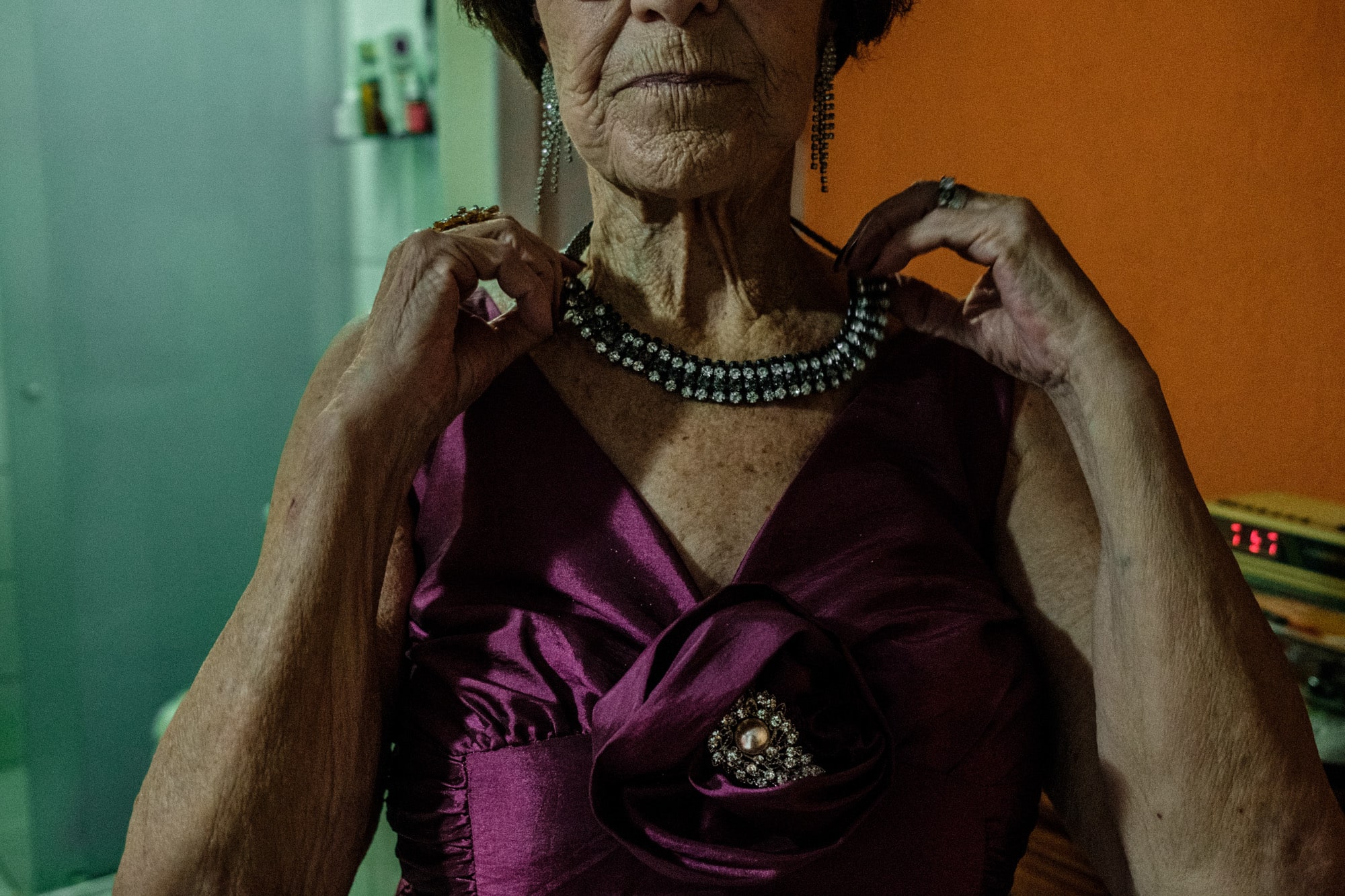
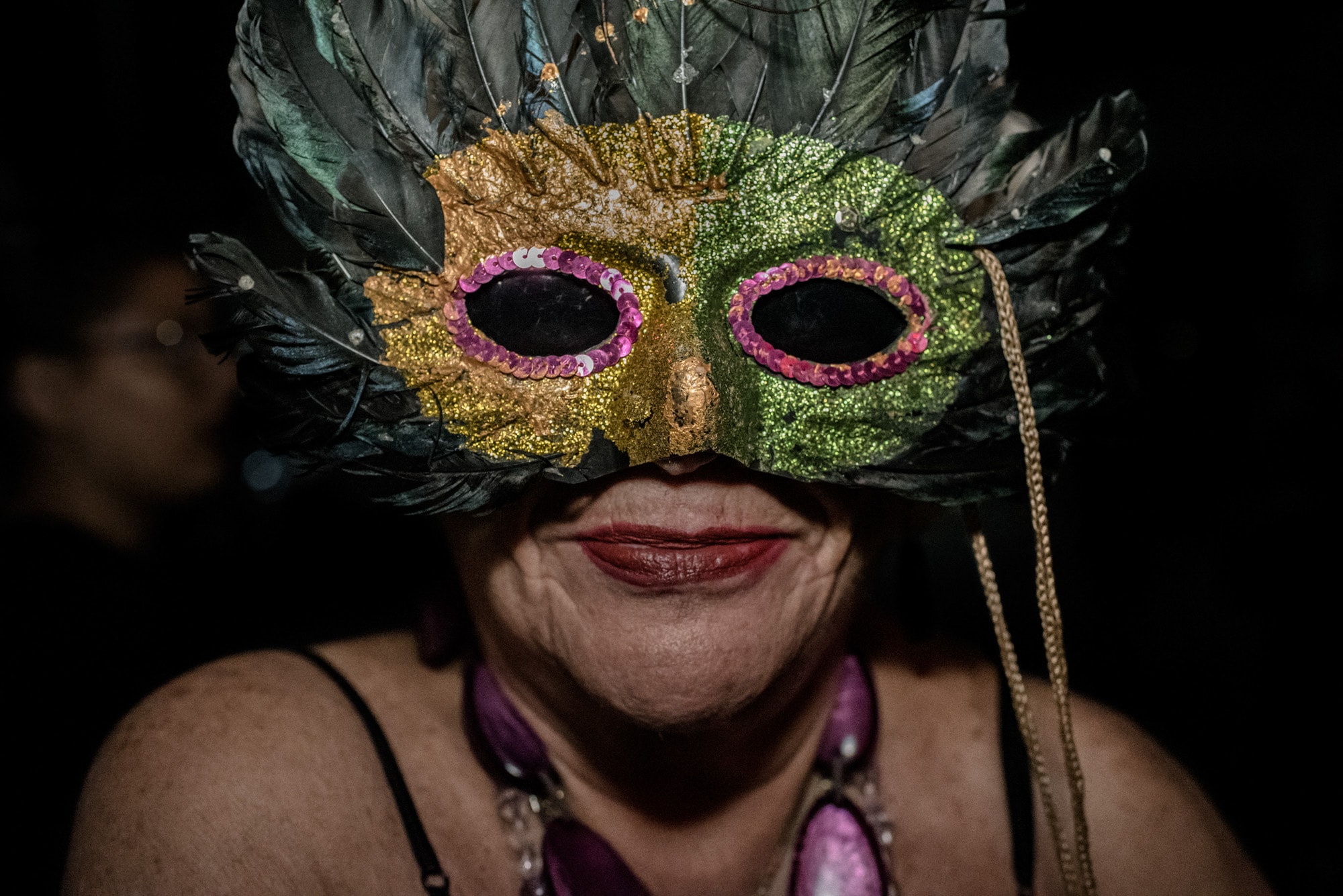
I’m curious to know how you imagine yourself at seventy years old. Or how you would like to be.
The project perhaps started because of that because the idea I had of myself at seventy was that I would be at home watching TV, reading the newspaper, and not doing anything fun; because that’s what I saw with my grandmothers. This project has allowed me to change my mindset. My mother and her friends have changed my attitude. She’s much more active than me: she does ballet, goes to the gym, takes French classes, and always travels.
It’s not like I’m locked up all the time, either. I feel super young. I’m 36. When I’m double that age, I have no idea what society will be like, but I think it will be very different because my generation doesn’t accept the things my grandmothers went through so easily anymore. In any case, I hope to continue being very active and doing the things I enjoy doing, like photography, traveling, and telling stories.
The other thing is that I don’t have children and don’t think I will. Before, there wasn’t this option of not having children. There was a path, a script that you had to follow in life: to get married, have children, and take care of the house and your husband. Now, that’s no longer the case. Let’s see what happens. But it will surely be very different.
